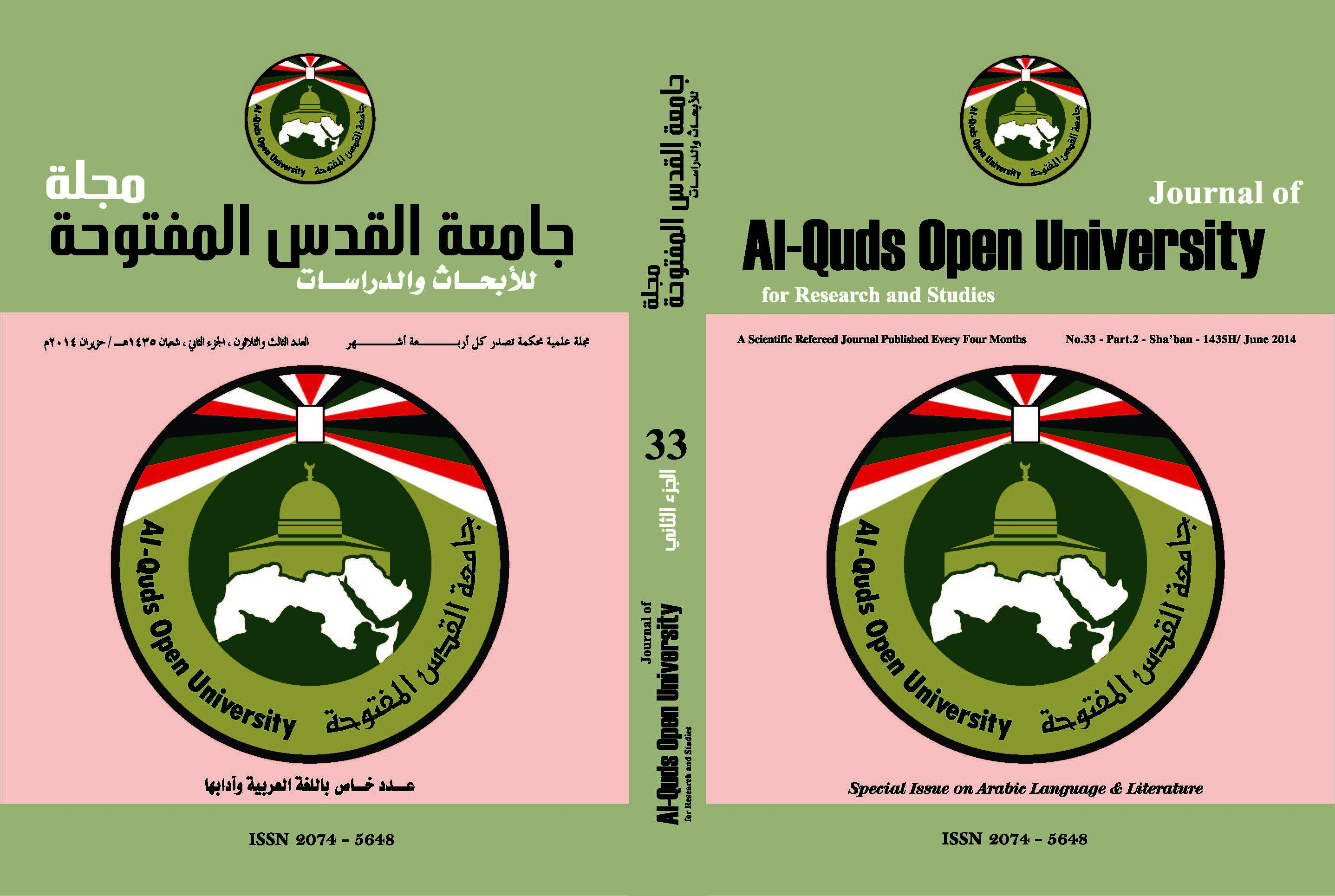Parallelism in Imam Shafii Poetry
Keywords:
Parallelism, poetry, Imam Sahfii, phenomenonAbstract
Poetry, an organism, derives its flavor from the cultural environments.
Neither the old poetry is damaged nor the new one is erased by death because
poetry is the speech spirit, the self talk, the pulse of thought, and the purity
of the language. Poetry does not differ from the components of this universe
where things are similar and different.
If parallelism as a term has emerged recently by Roman Aakpson,
the Arabic rhetoric has known a lot of terms that reflect the essence of
parallelism. The Arabic poetry never left parallelism and its forms, but it
varied in existence through the ages. This research seeks to determine the
manifestations of parallelism in the poetry of Imam Shafei, and how to
organize the text components (both acoustic and synthetic components) .
Parallelism is both constitutive and organizational; it regulates the
relations of vocabulary and structures, and it transmits the text from serenity
to motion. So, the researcher divided this research into four main sections, and
an introduction: which introduces Imam shafei and the concept of parallelism
and its relationship with the Arabic rhetoric. The first section handles the
acoustic parallelism; the second section: the morphological parallelism, the
third section: the lexical parallelism; and the final section, is concerned with
grammatical parallelism (synthetic) and its impact on the cohesion of the
text. The researcher was keen in all categories on highlighting the impact of
parallelism on indication and rhythm.
Downloads
Published
How to Cite
Issue
Section
License
- The editorial board confirms its commitment to the intellectual property rights
- Researchers also have to commit to the intellectual property rights.
- The research copyrights and publication are owned by the Journal once the researcher is notified about the approval of the paper. The scientific materials published or approved for publishing in the Journal should not be republished unless a written acknowledgment is obtained by the Deanship of Scientific Research.
- Research papers should not be published or republished unless a written acknowledgement is obtained from the Deanship of Scientific Research.
- The researcher has the right to accredit the research to himself, and to place his name on all the copies, editions and volumes published.
- The author has the right to request the accreditation of the published papers to himself.













_2.png)
_.png)
_2.png)
_1.png)
_.png)

